ESC-HFA 2023: Late-Breaking Science Video Collection
Published: 23 May 2023
-
Views:
 3160
3160
-
Likes:
 7
7
-
Views:
 3160
3160
-
Likes:
 7
7
-
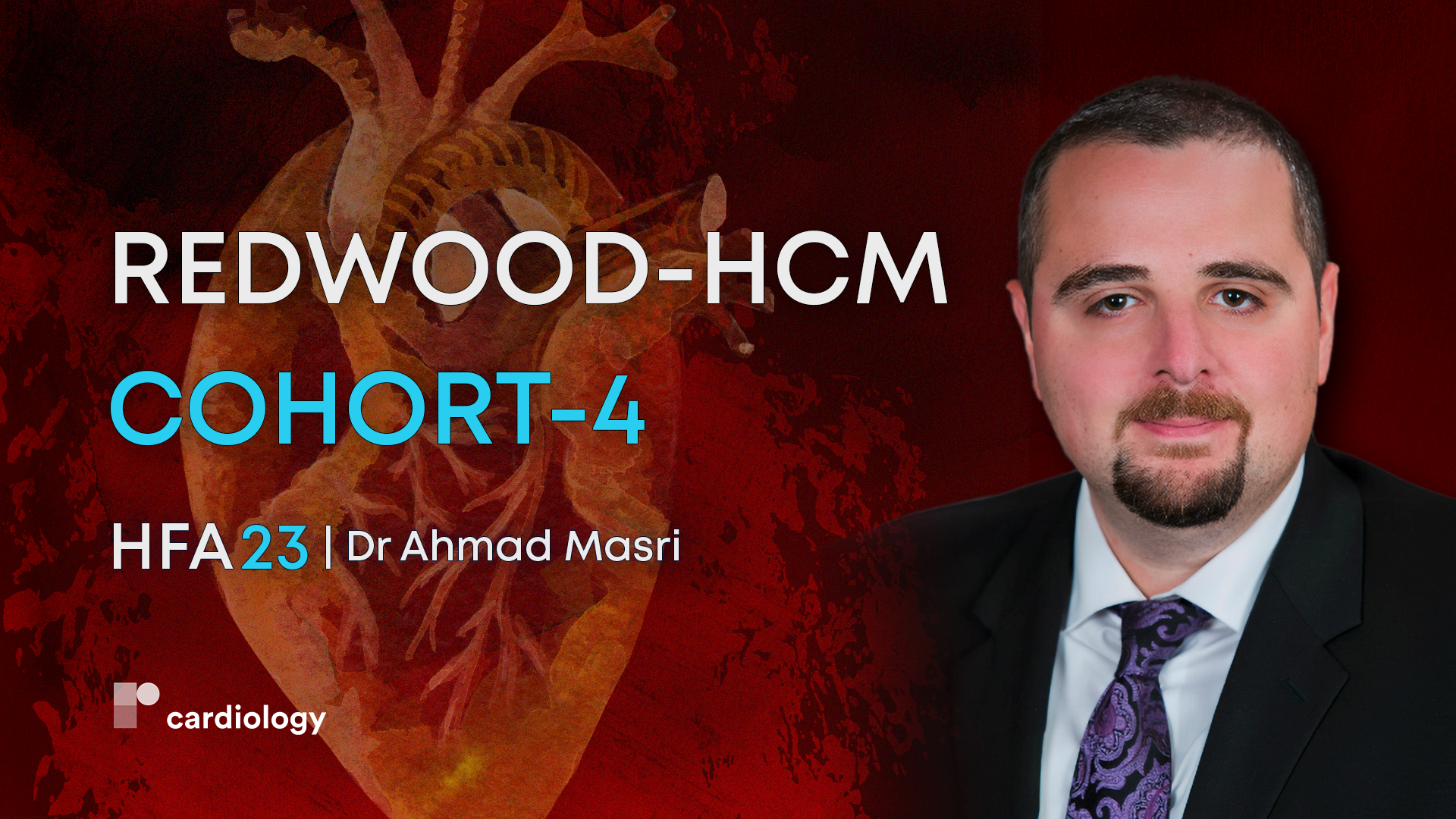 Up Next
Up Next -
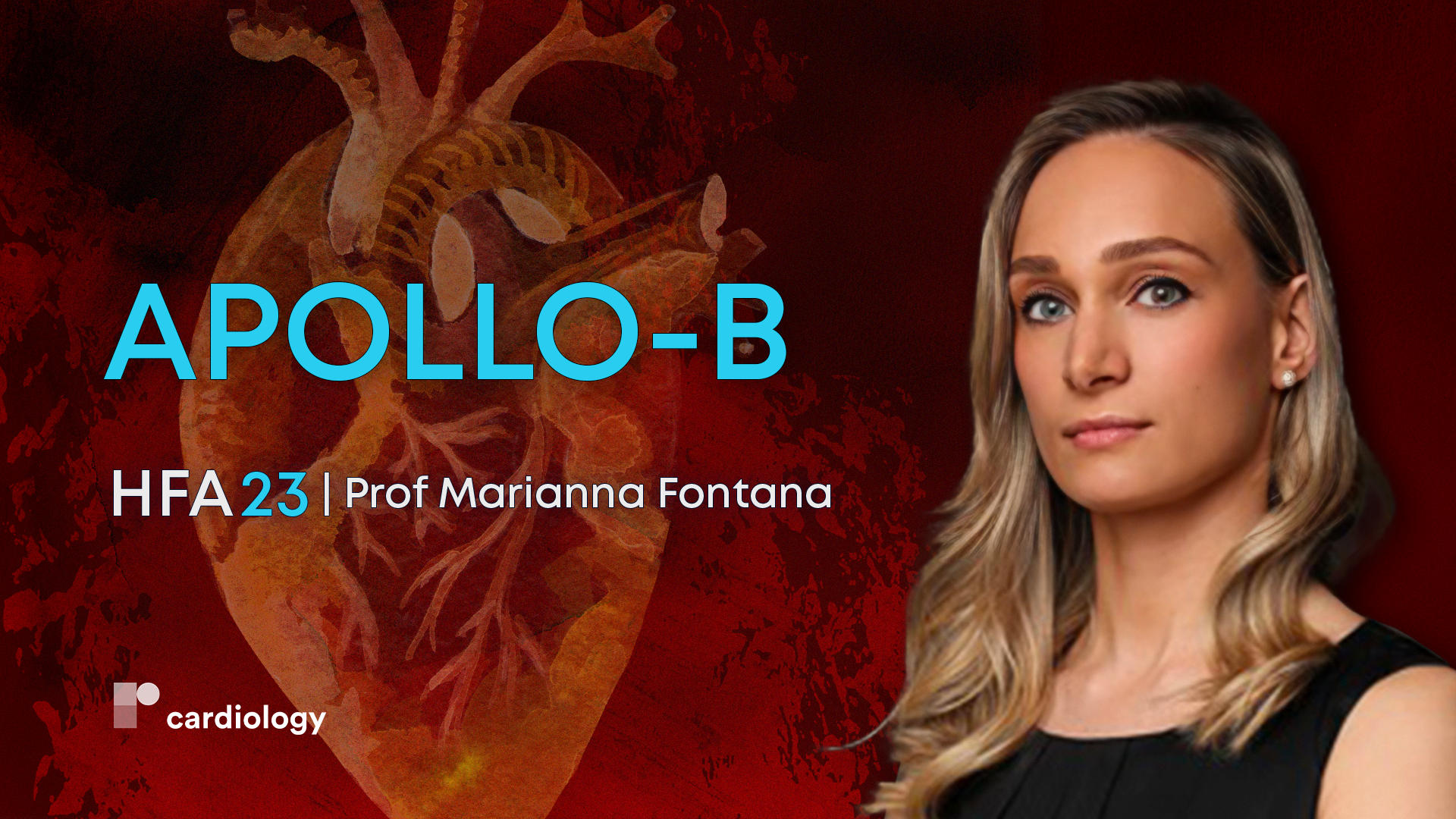 3m 11sPart 2 | Session 3 APOLLO-B: Patisiran Treatment for Cardiac Amyloidosis
3m 11sPart 2 | Session 3 APOLLO-B: Patisiran Treatment for Cardiac Amyloidosis -
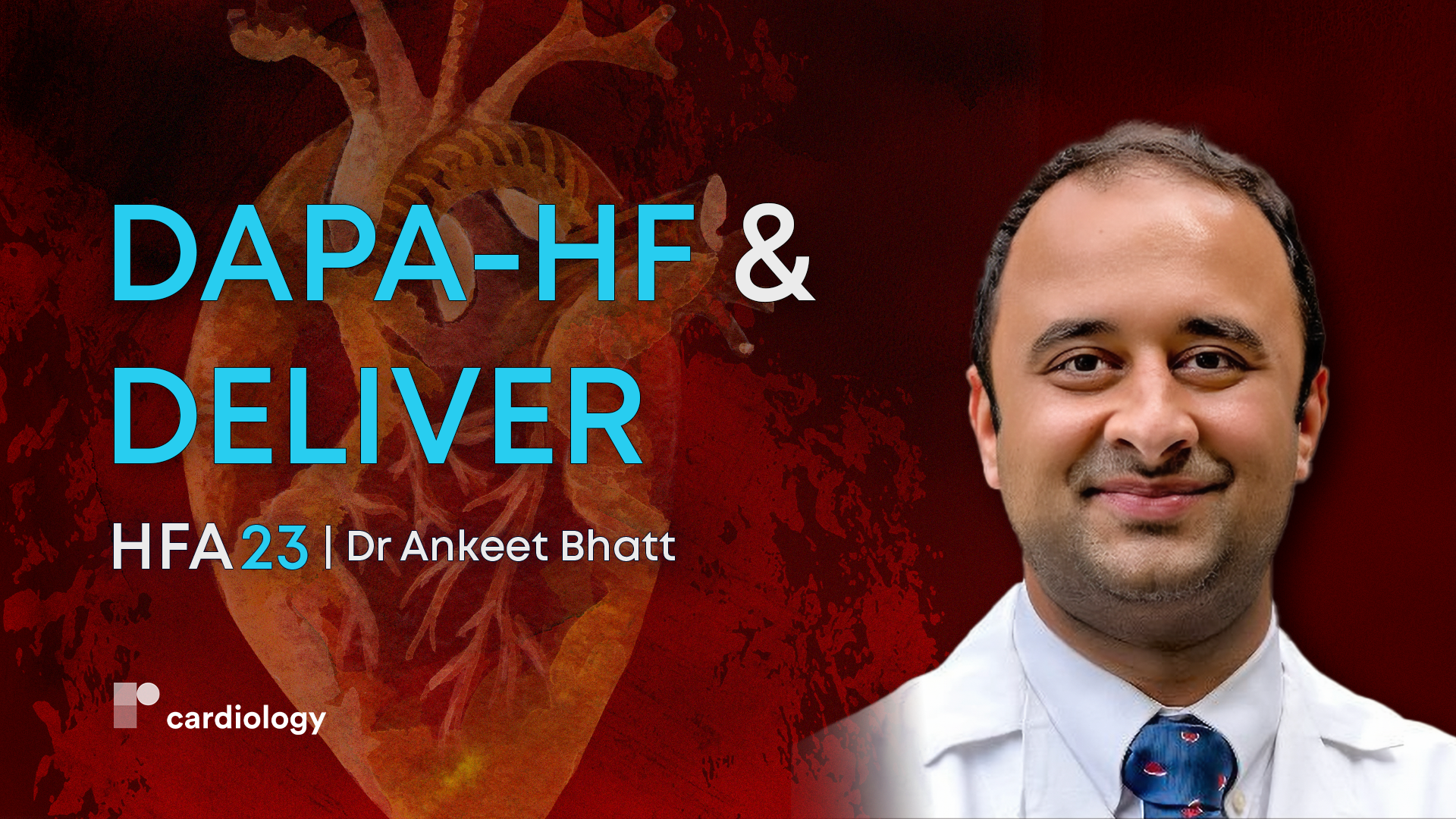 4m 45sPart 2 | Session 4 DAPA-HF and DELIVER: KCCQ in Patients with Varying Ejection Fraction
4m 45sPart 2 | Session 4 DAPA-HF and DELIVER: KCCQ in Patients with Varying Ejection Fraction -
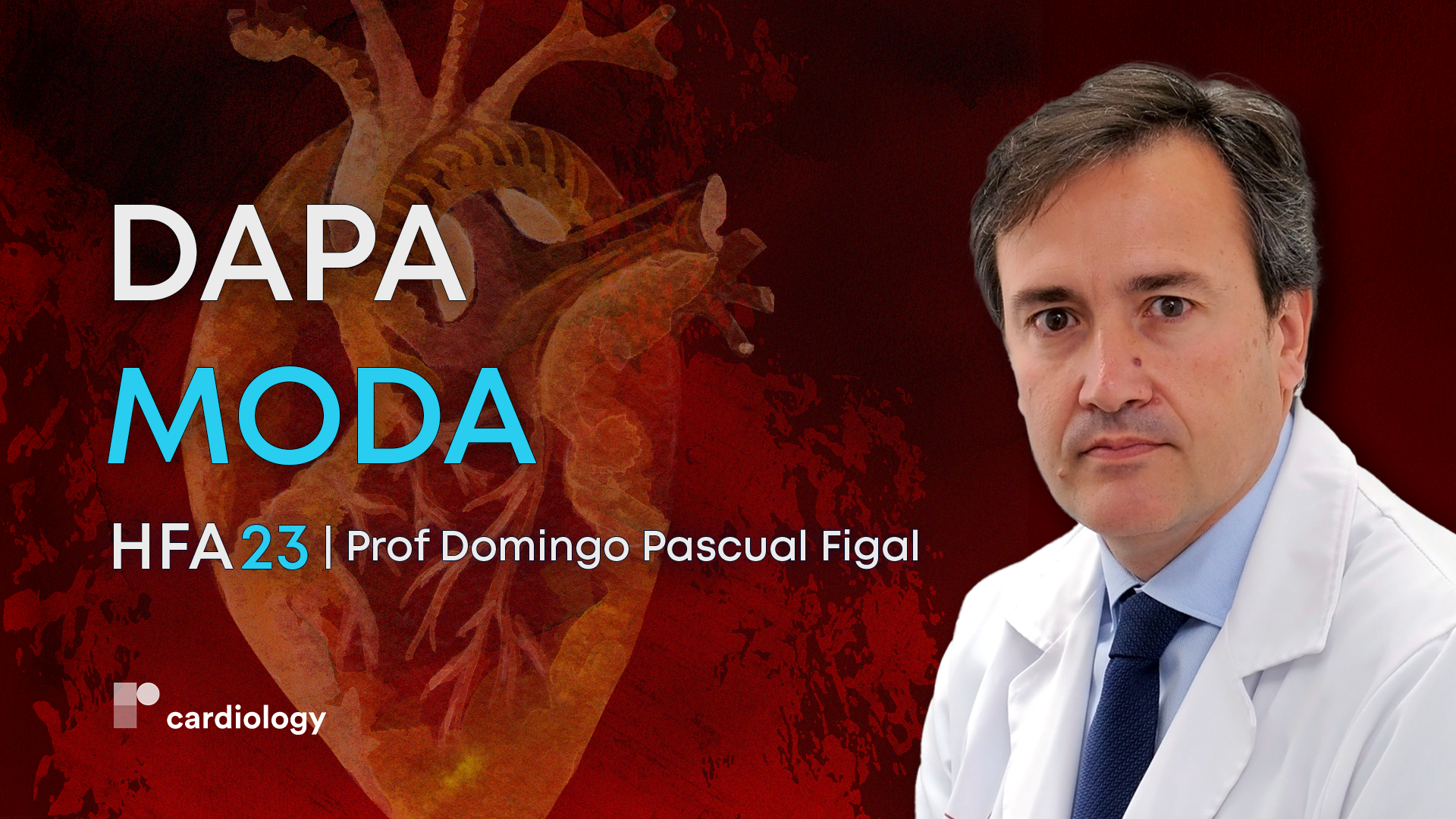 8m 47sPart 2 | Session 5 DAPA MODA: Dapaglifozin & Cardiac Remodelling in Chronic HF
8m 47sPart 2 | Session 5 DAPA MODA: Dapaglifozin & Cardiac Remodelling in Chronic HF -
 4m 53sPart 2 | Session 6 NUDGE-FLU: Increasing Influenza Vaccination in HF Patients
4m 53sPart 2 | Session 6 NUDGE-FLU: Increasing Influenza Vaccination in HF Patients -
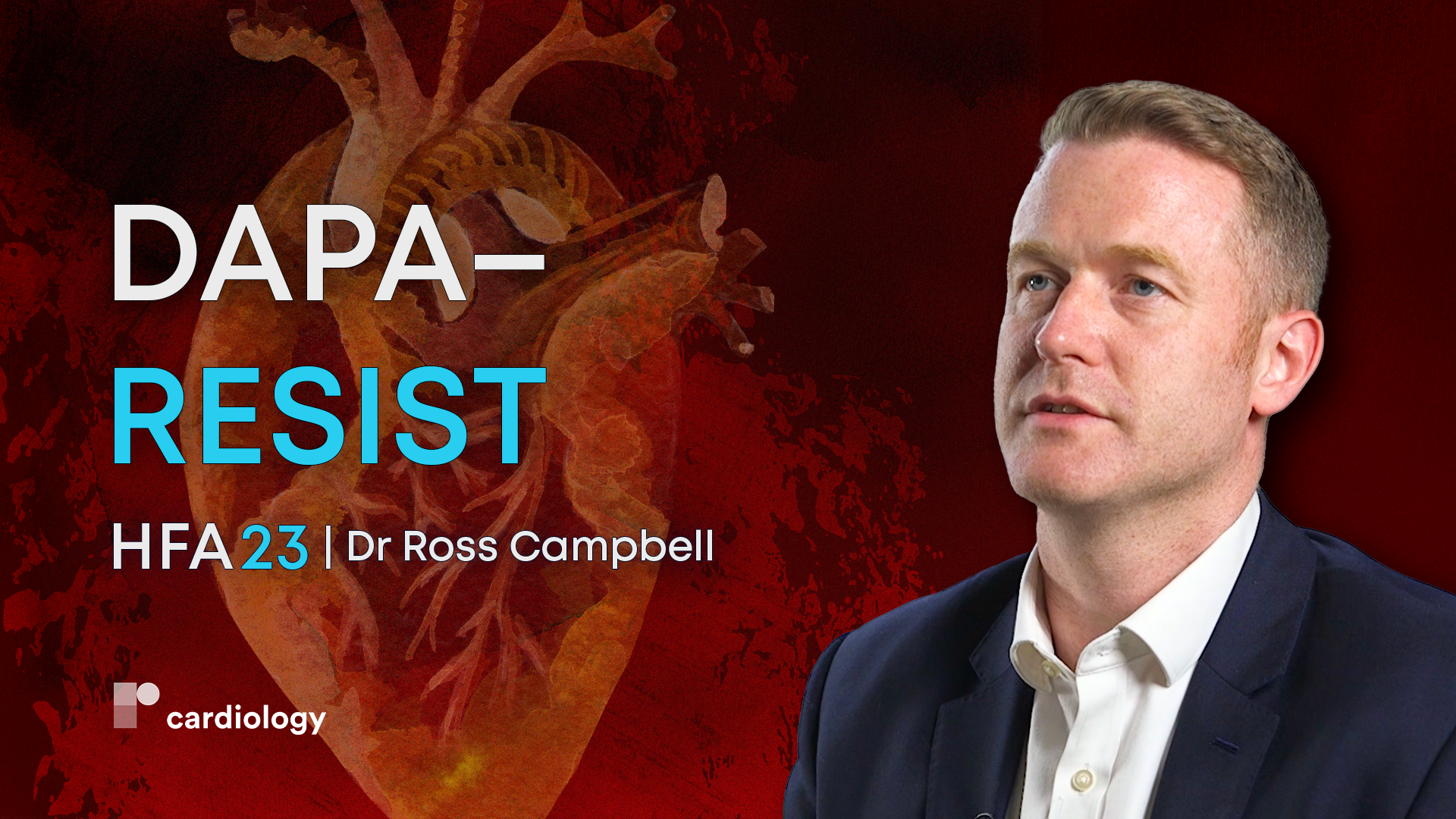 3m 56sPart 2 | Session 7 DAPA-RESIST: Dapagliflozin Vs Metolazone in Diuretic-Resistant HF
3m 56sPart 2 | Session 7 DAPA-RESIST: Dapagliflozin Vs Metolazone in Diuretic-Resistant HF -
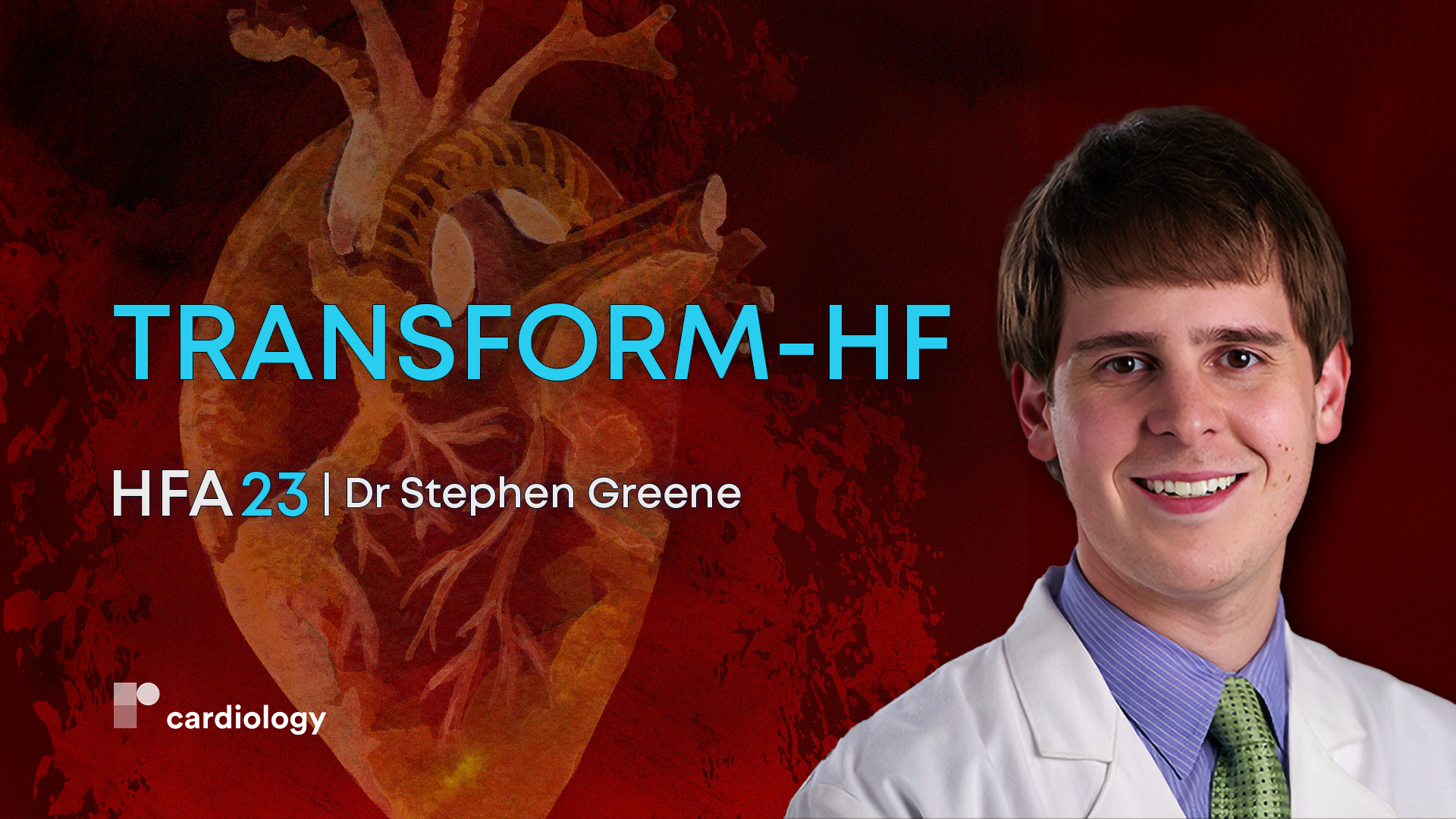 5m 11sPart 2 | Session 8 TRANSFORM-HF: Torsemide Vs Furosemide on Quality of Life in Heart Failure
5m 11sPart 2 | Session 8 TRANSFORM-HF: Torsemide Vs Furosemide on Quality of Life in Heart Failure -
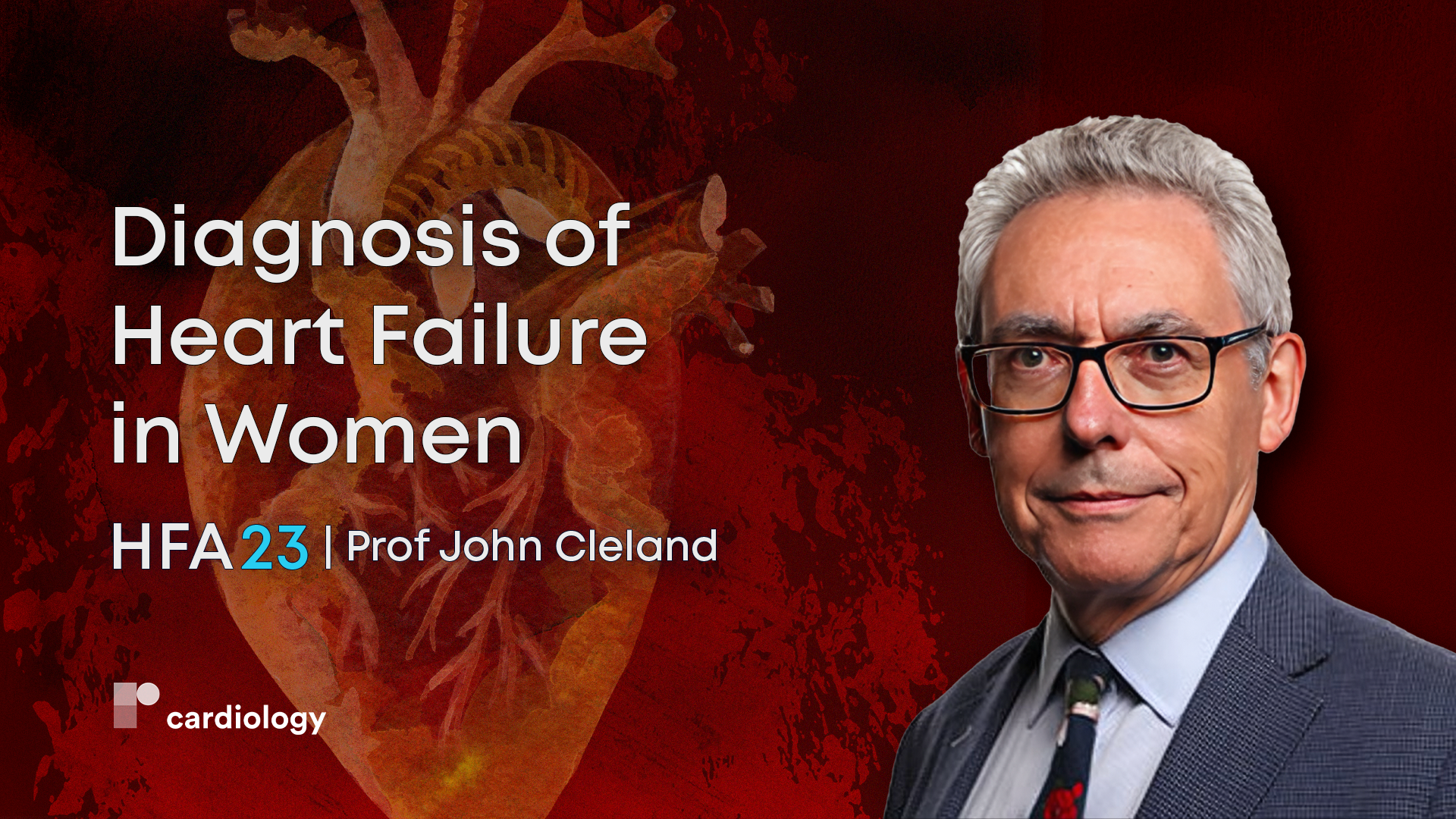 8m 22sPart 2 | Session 9 Diagnosis in Heart Failure in Women
8m 22sPart 2 | Session 9 Diagnosis in Heart Failure in Women -
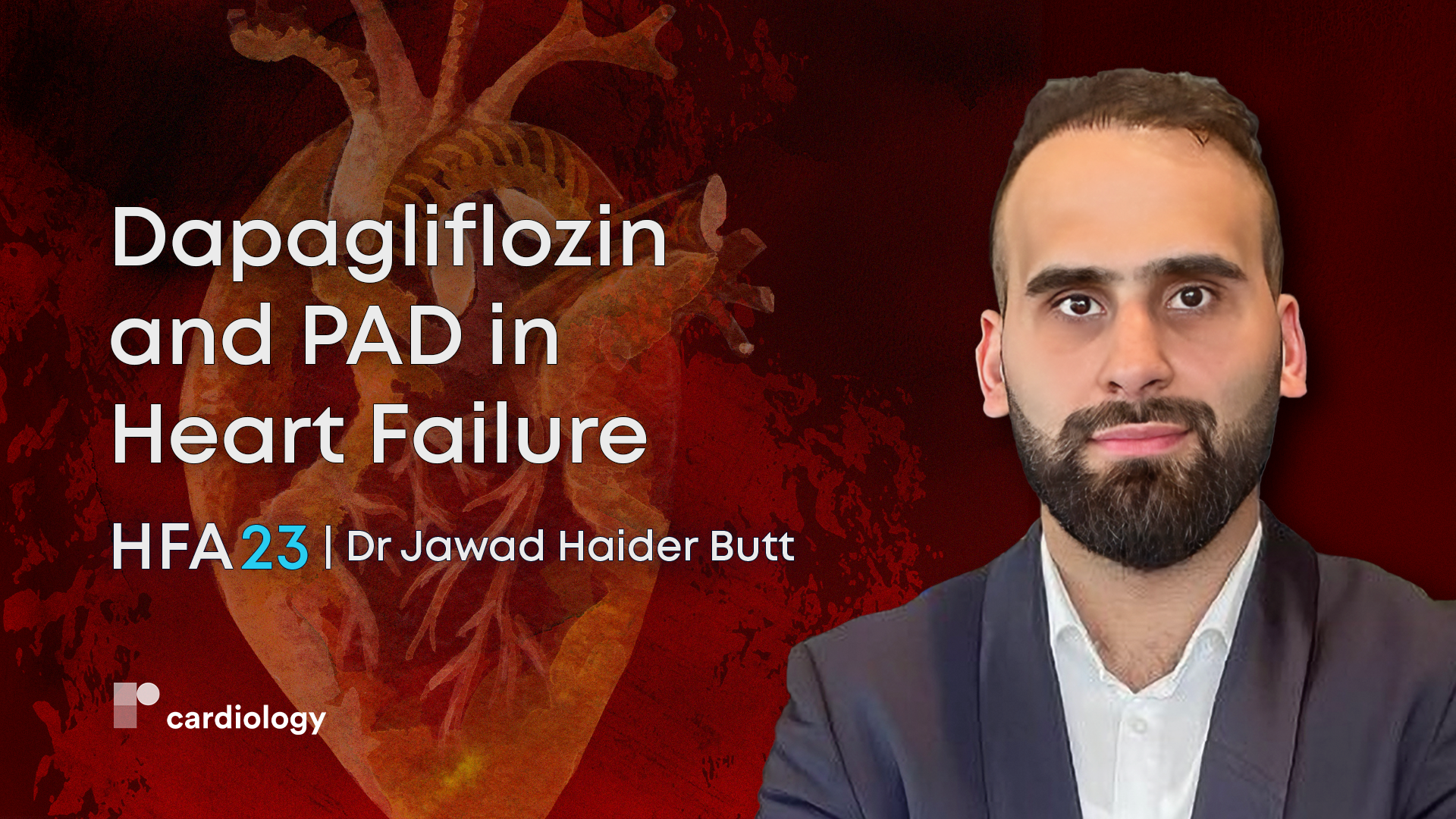 3m 50sPart 2 | Session 10 Dapagliflozin and Peripheral Arterial Disease in Heart Failure
3m 50sPart 2 | Session 10 Dapagliflozin and Peripheral Arterial Disease in Heart Failure
-
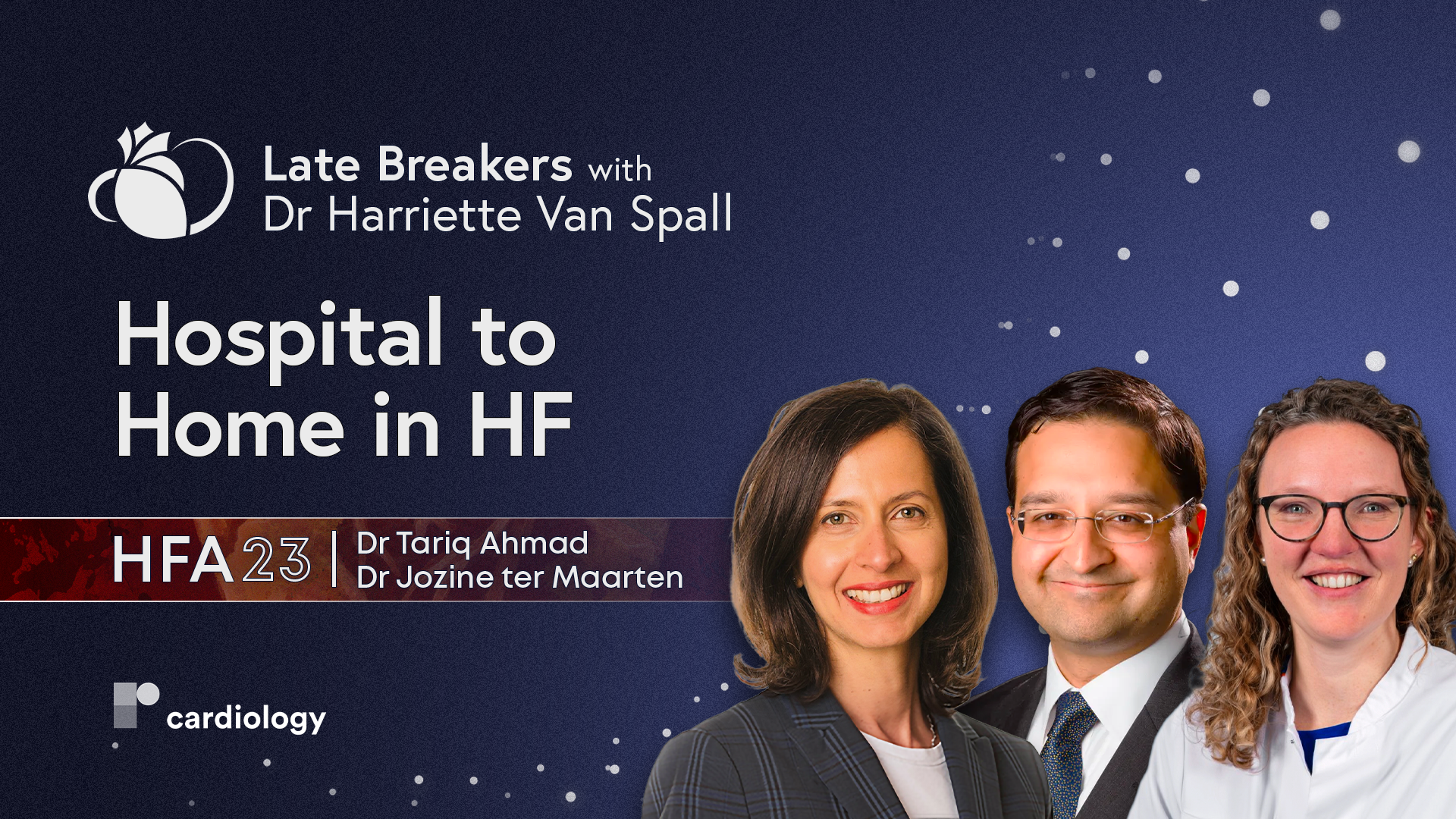 26m 30sPart 1 | Session 1 Hospital to Home in HF: Insights from ACT-HF, PROMPT-AHF & STRONG-HF Kidney Harriette Van Spall, Tariq Ahmad, Jozine ter Maaten
26m 30sPart 1 | Session 1 Hospital to Home in HF: Insights from ACT-HF, PROMPT-AHF & STRONG-HF Kidney Harriette Van Spall, Tariq Ahmad, Jozine ter Maaten
-
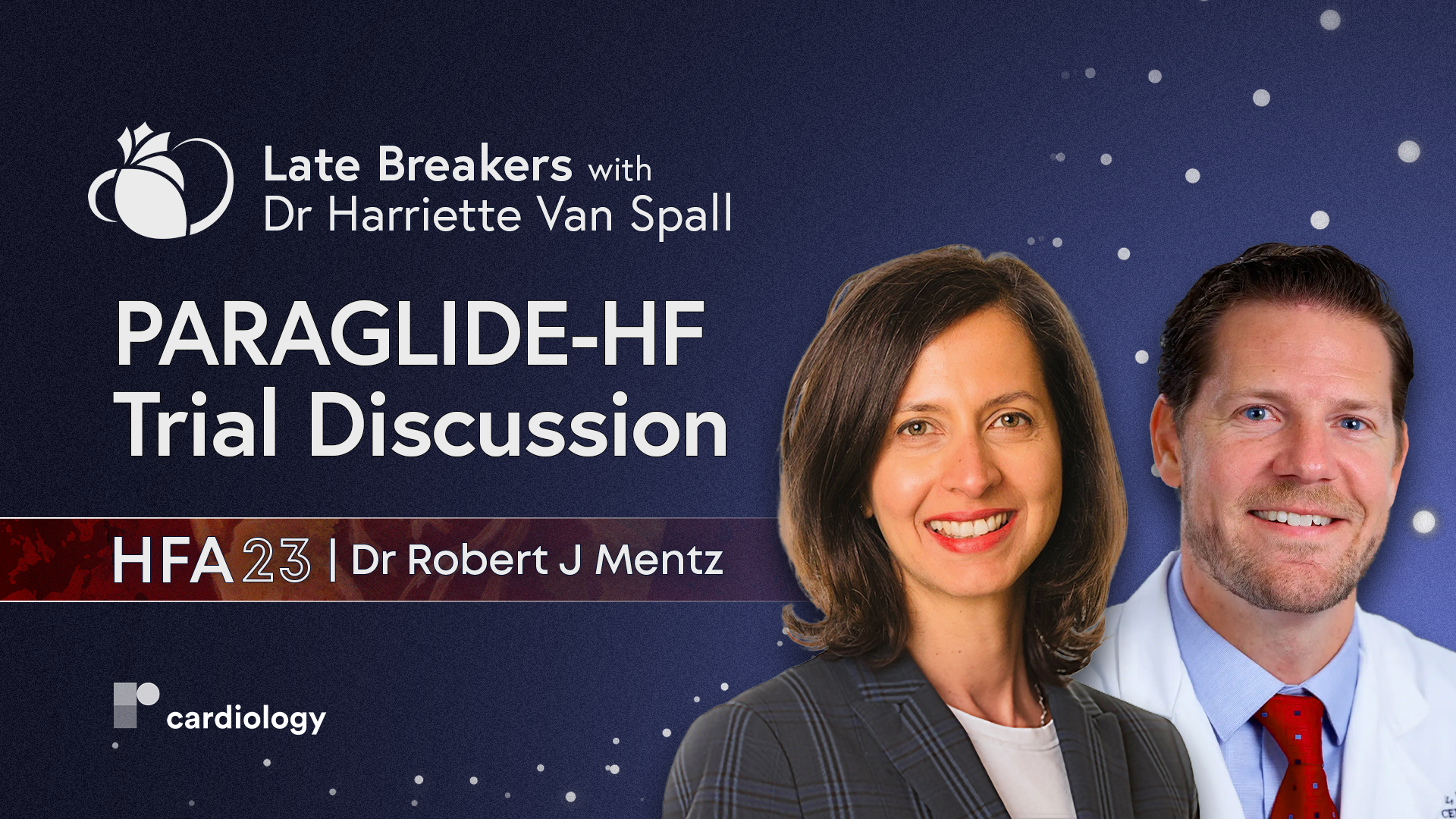 5m 48sPart 1 | Session 2 The PARAGLIDE-HF Trial Harriette Van Spall, Robert Mentz
5m 48sPart 1 | Session 2 The PARAGLIDE-HF Trial Harriette Van Spall, Robert Mentz
-
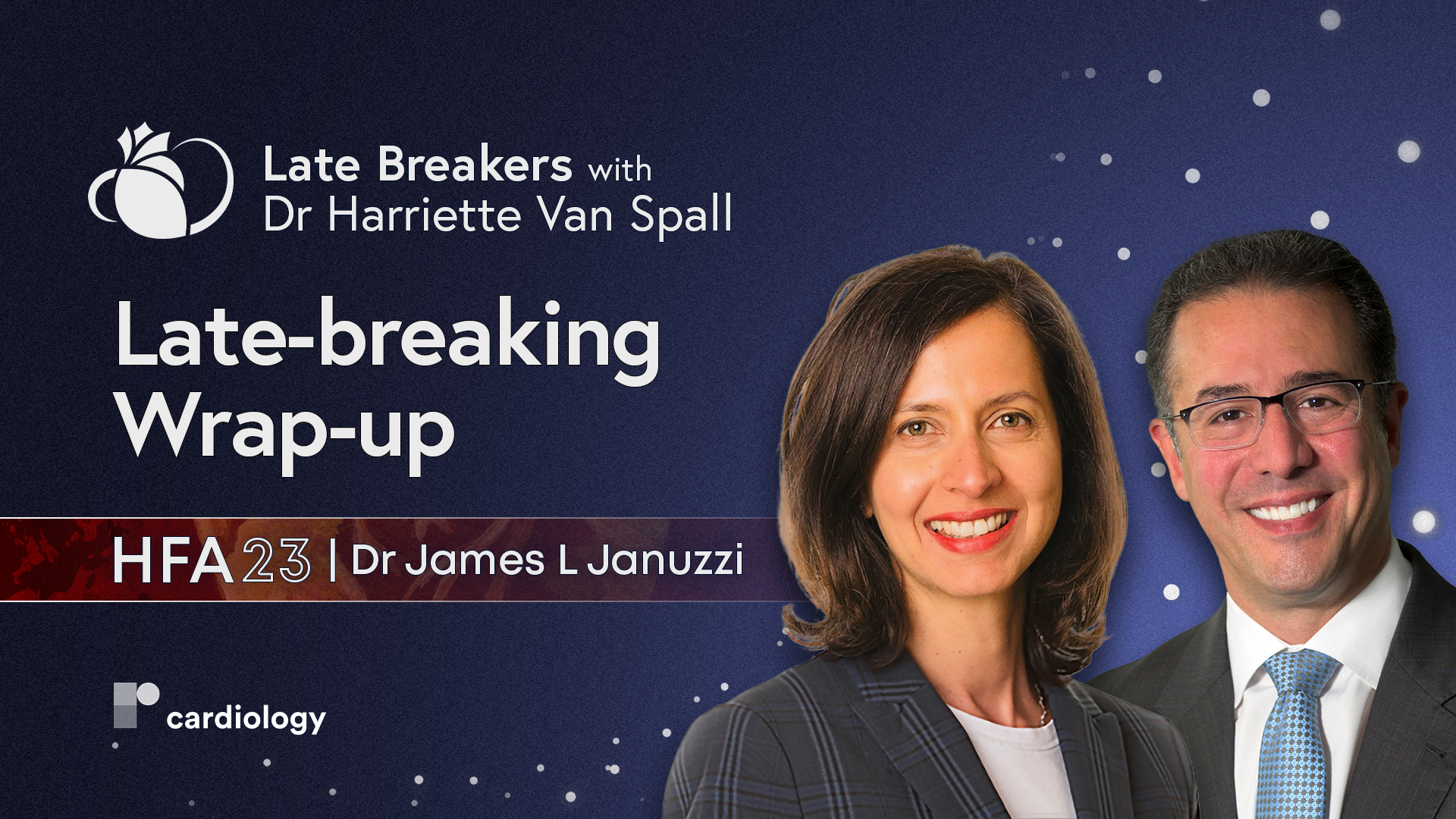 13m 32sPart 1 | Session 3 HFA 2023 Late-breaking Science Highlights With Dr Van Spall & Dr Januzzi Harriette Van Spall, James L Januzzi
13m 32sPart 1 | Session 3 HFA 2023 Late-breaking Science Highlights With Dr Van Spall & Dr Januzzi Harriette Van Spall, James L Januzzi
-
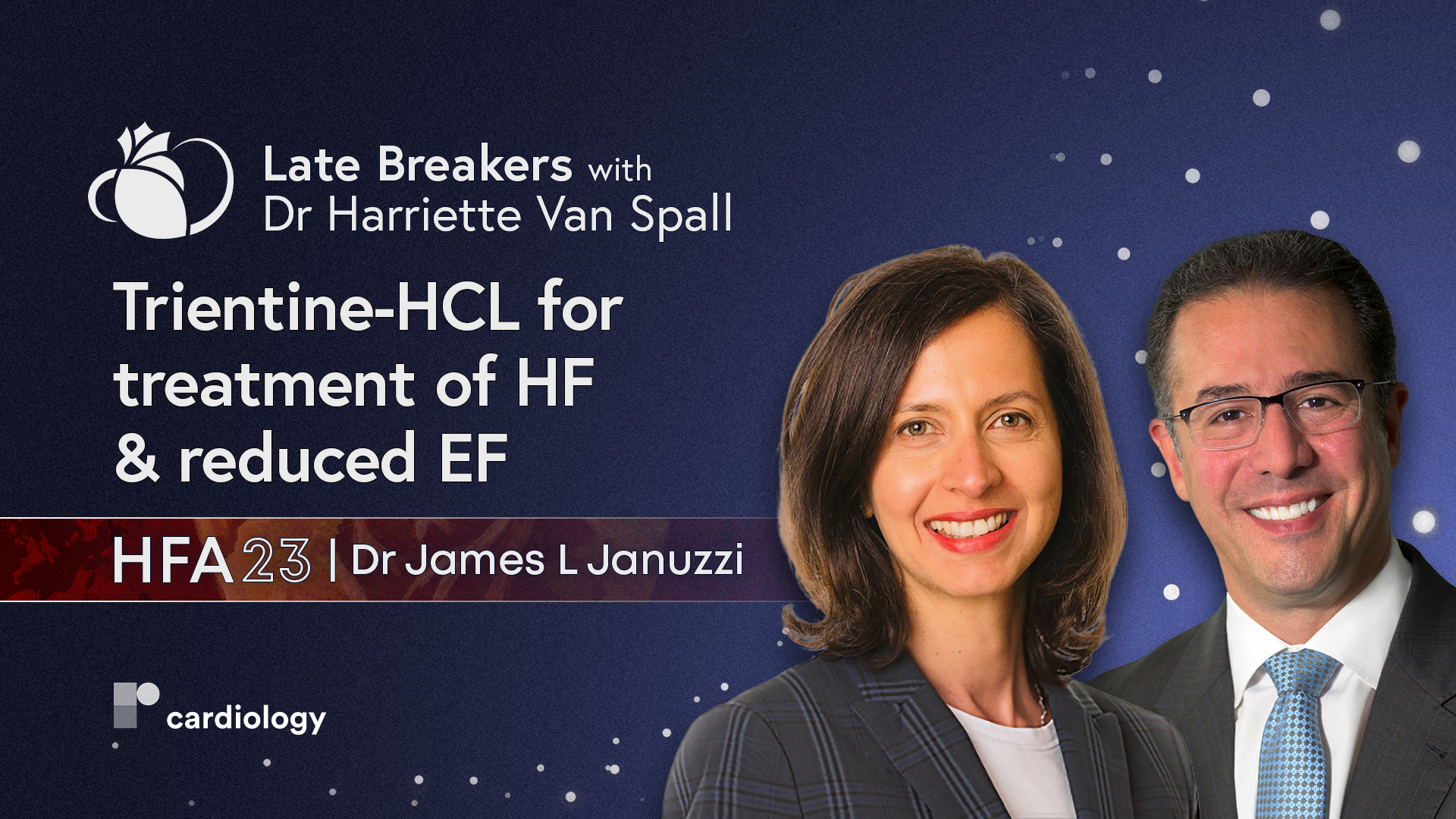 4m 3sPart 1 | Session 4 TRACER-HF: Trientine-HCL for Treatment of Heart Failure and Reduced Ejection Fraction James L Januzzi, Harriette Van Spall
4m 3sPart 1 | Session 4 TRACER-HF: Trientine-HCL for Treatment of Heart Failure and Reduced Ejection Fraction James L Januzzi, Harriette Van Spall
-
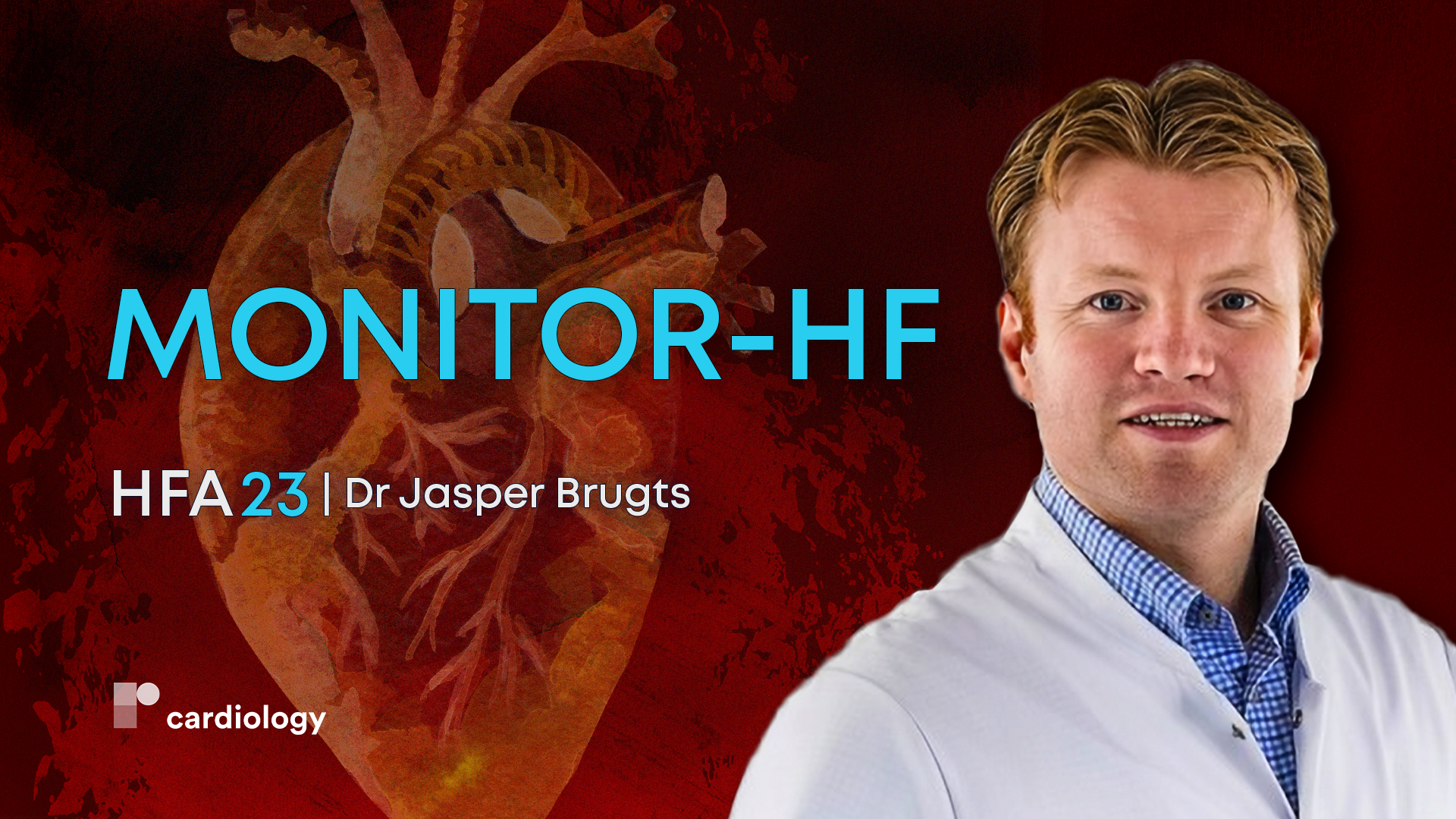 2m 45sPart 2 | Session 1 MONITOR-HF: Improving QoL& Reducing HF Hospitalisations with PAP Monitoring Jasper J Brugts
2m 45sPart 2 | Session 1 MONITOR-HF: Improving QoL& Reducing HF Hospitalisations with PAP Monitoring Jasper J Brugts
Overview
Get the most out of the new data from, Late-breaker host, Dr Harriette Van Spall and Dr James Januzzi wrap up of the most impactful trials and studies presented at Heart Failure 2023.
Delve into in-depth and critical discussions with Dr Van Spall in our thought-provoking Late-breaker Discussion series.
For concise and practical take-home messages for practice and cardiovascular research watch our 5-minute Expert Interviews conducted with investigators.
Watch our Behind the Heart Series to hear more from the personal perspectives of the investigators behind the top trials of HFA 2023.
More from this programme
Part 1
Late-breaker Discussions with Dr Van Spall
Part 2
Expert Interviews
About the episode
We are joined by Dr Ahmad Masri (Oregon Health & Science University Medical Group, US) to discuss the findings from REDWOOD-HCM cohort 4 (NCT04219826).
This study assessed the safety and tolerability of the selective inhibitor of cardiac myosin, aficamten (Cytokinetics) in patients with symptomatic nHCM. Cohort 4 included 41 patients. The data presented at HFA 23 shows that aficamten treatment was well-tolerated in patients with nHCM, supporting further study of the drug in a phase 3 trial.
Interview Questions:
- What is currently understood about the pathophysiology of nHCM and what treatment options are available in 2023?
- How does Aficamten, a selective inhibitor of cardiac myosin, work?
- What was the study design, patient population, and outcome measures of REDWOOD-HCM-Cohort 4?
- What data was presented at the HFA and what conclusions can be drawn from the findings?
- What safety considerations and adverse events were observed?
- What are the next steps in research or clinical development?
Faculty Biographies

Ahmad Masri
Dr Ahmad Masri M.D., M.S. trained in Internal Medicine at the Cleveland Clinic.
He specialises in caring for patients with conditions that result in abnormally thickened hearts, such as hypertrophic cardiomyopathy, amyloidosis and Fabry’s disease.








Comments